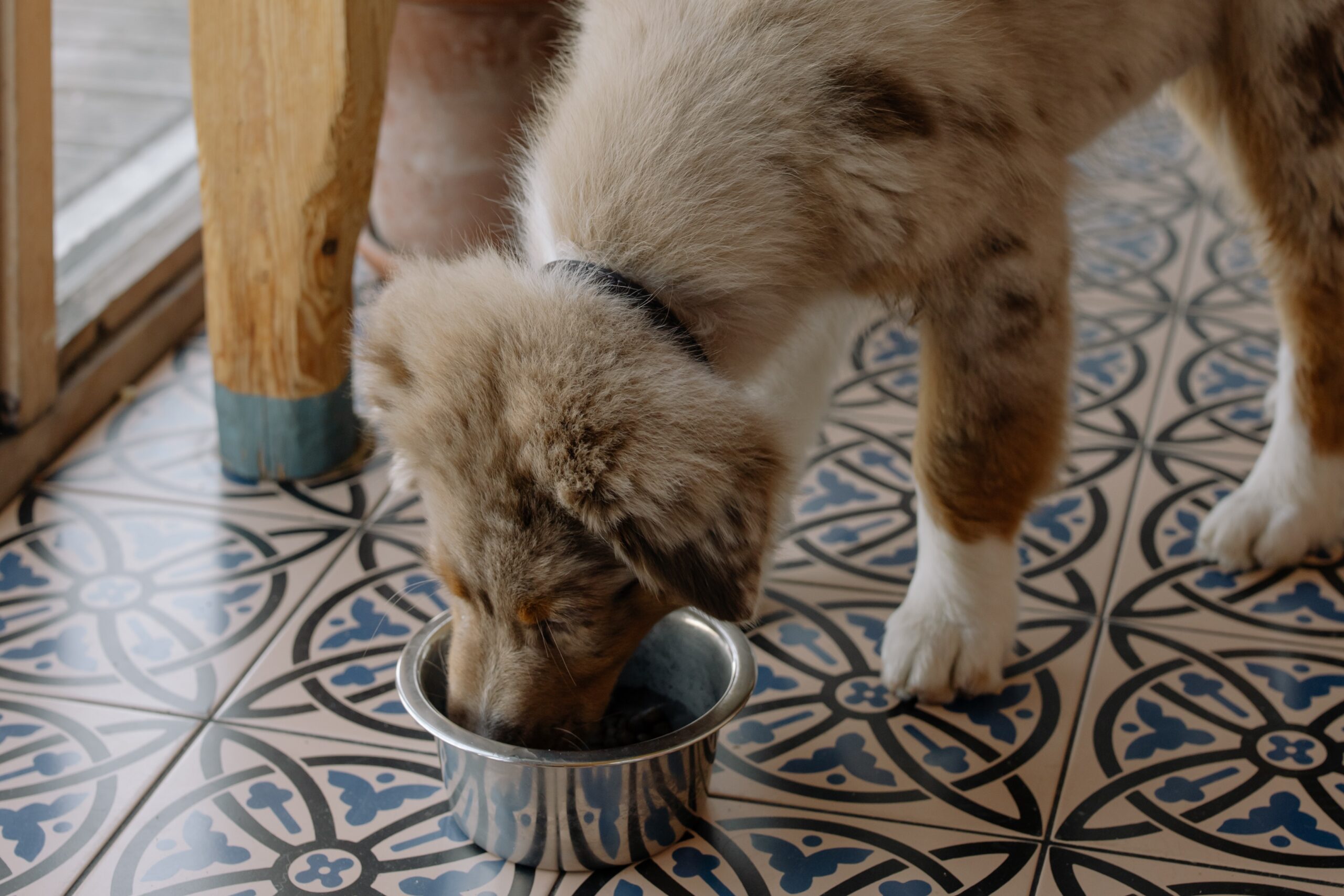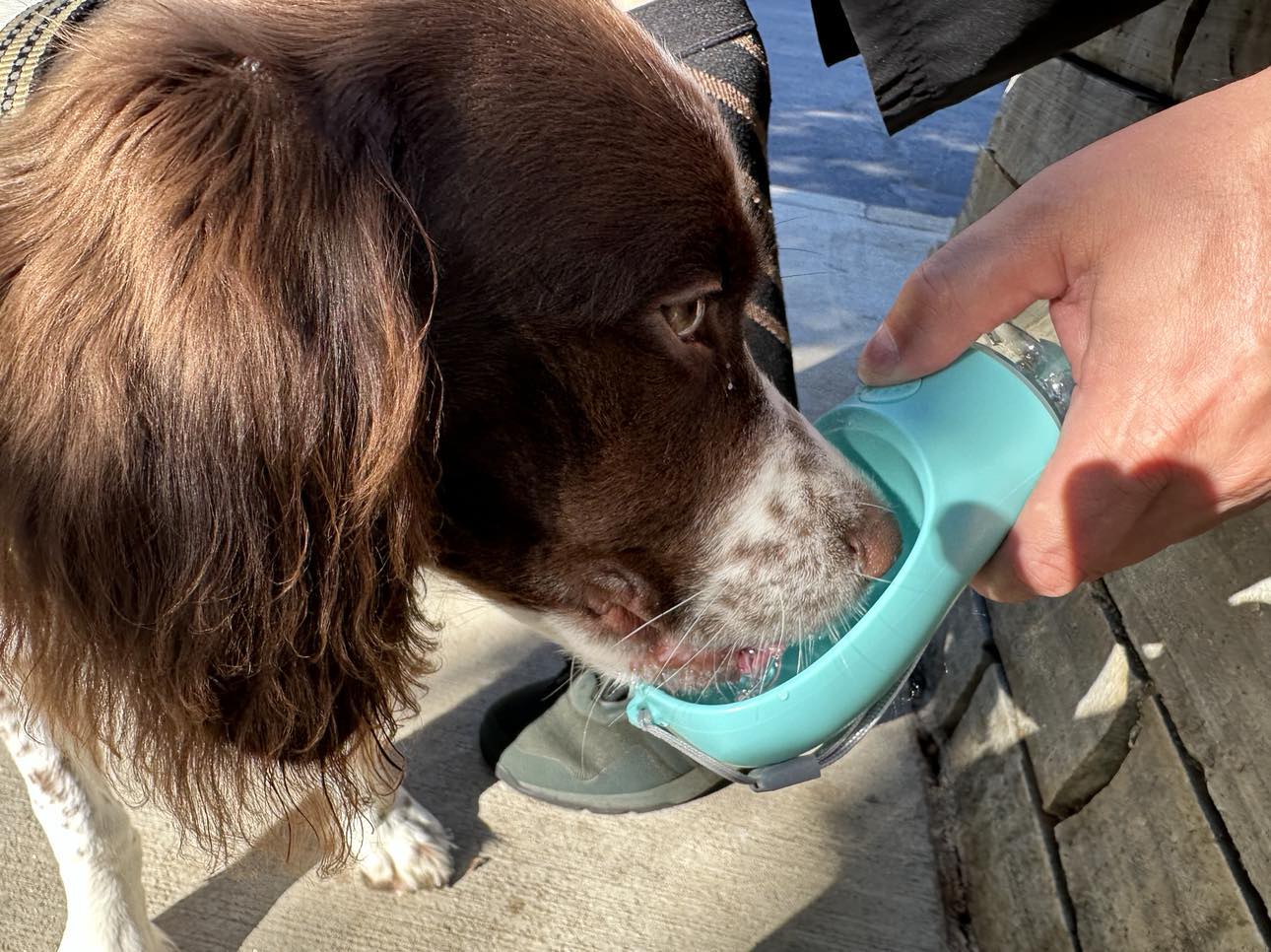Owning a dog is a rewarding experience that brings joy, love, and companionship into our lives. However, along with the joy of dog ownership comes a range of responsibilities, including providing for their well-being and ensuring their needs are met. One crucial aspect of dog ownership that should not be overlooked is the financial commitment required to care for our canine companions. From initial costs to ongoing expenses, being financially prepared is essential to ensure a happy and healthy life for our furry friends.
Welcoming a dog into your home can be a life-changing and heartwarming experience. The love and loyalty that dogs offer are unparalleled, enriching our lives in countless ways. Dogs provide companionship, comfort, and an unwavering presence that brings happiness to our daily routines. As responsible pet owners, we have a duty to care for our dogs and provide them with the love and attention they deserve. This responsibility includes addressing their physical, mental, and emotional needs and ensuring they lead fulfilling lives.
While the joys of dog ownership are boundless, it’s essential to recognize that caring for a dog requires financial commitment and planning. From initial adoption or purchase costs to ongoing expenses like food, veterinary care, grooming, and training, the financial responsibilities of owning a dog can add up over time. Being prepared for these costs ensures that we can provide our dogs with the best possible care and support, promoting their health, happiness, and overall well-being.
In the following sections, we will delve deeper into the various financial considerations that come with owning a dog. By understanding and planning for these expenses, we can ensure that our beloved furry companions lead fulfilling lives and that we can confidently embark on this wonderful journey of dog ownership.
Initial Costs of Acquiring a Dog
Adoption Fees from Shelters or Rescues
Adopting a dog from a shelter or rescue organization is a wonderful way to give a loving home to a pet in need. However, it’s important to be aware of the adoption fees associated with this process. Shelters and rescues often charge adoption fees to cover the costs of caring for the dogs, including vaccinations, spaying or neutering, and microchipping. The adoption fees may vary depending on the organization and the age, breed, or health condition of the dog.
While adoption fees might seem like an initial expense, they are a crucial investment that helps support the rescue efforts and the care of other animals in need. Additionally, adopting a dog from a shelter or rescue organization can save you significant costs compared to purchasing from a breeder.
Purchase Costs from Breeders
If you choose to purchase a dog from a responsible breeder, it’s essential to be prepared for the associated costs. Reputable breeders invest time, effort, and resources in breeding healthy and well-socialized dogs. As a result, the purchase cost of a purebred dog can be higher than adoption fees.
When considering purchasing from a breeder, research and choose a responsible breeder who prioritizes the health and well-being of their dogs. Keep in mind that paying a higher upfront cost for a dog from a reputable breeder can potentially save you money on future veterinary expenses, as well-bred dogs are less prone to genetic health issues.
Necessary Supplies and Equipment (e.g., collar, leash, crate, bowls)
In addition to the adoption or purchase costs, there are initial expenses for necessary supplies and equipment that your new dog will need. These include:
- Collar and leash: Essential for walks and outings, a good-quality collar and leash are necessary for your dog’s safety and well-being.
- Crate or carrier: A crate provides a safe and secure space for your dog, especially during housetraining and when traveling. Carriers are essential for transporting your dog in a vehicle.
- Food and water bowls: High-quality bowls made of stainless steel, ceramic, or BPA-free plastic are ideal for feeding and watering your dog.
- Bedding and blankets: Providing a comfortable bed and soft blankets ensures your dog has a cozy place to rest and sleep.
- Grooming supplies: Depending on your dog’s coat type, grooming supplies like brushes, nail clippers, and shampoos may be necessary to maintain their appearance and hygiene.
Investing in these initial supplies ensures that your dog has a smooth transition to their new home and helps set them up for a happy and healthy life. Remember that these items are long-term investments that will continue to serve your dog’s needs for years to come.
Veterinary Expenses
Regular Check-Ups and Vaccinations
Regular veterinary check-ups are an essential part of responsible dog ownership. During these visits, your veterinarian will assess your dog’s overall health, detect any potential issues early on, and provide preventive care. Routine vaccinations are a crucial aspect of keeping your dog protected against common and potentially life-threatening diseases. Vaccines such as rabies, distemper, parvovirus, and others help ensure your dog’s immunity and well-being.
While the costs of regular check-ups and vaccinations may seem small individually, they can add up over time. However, investing in preventive veterinary care can significantly reduce the risk of your dog developing serious health problems, potentially saving you from more significant expenses in the long run.
Preventative Medications (flea, tick, heartworm)
Preventative medications are essential for safeguarding your dog against parasites such as fleas, ticks, and heartworms. Fleas and ticks can cause discomfort and transmit diseases, while heartworms can be life-threatening. Preventative medications, such as monthly topical treatments or oral medications, are crucial for keeping these parasites at bay.
The cost of preventative medications varies depending on your dog’s size, the brand of medication, and the region you live in. While it might seem like an added expense, preventing parasite infestations and heartworm infections is much more cost-effective than treating an infestation or dealing with heartworm disease.
Emergency and Unexpected Medical Expenses
As much as we try to provide the best care for our dogs, unforeseen accidents and illnesses can happen. In such cases, emergency medical expenses may be necessary to ensure your dog receives prompt and lifesaving care. These unexpected costs can include emergency surgeries, diagnostic tests, medications, and hospitalization.
It’s crucial to be financially prepared for emergencies by setting up an emergency fund or considering pet insurance. Pet insurance can help mitigate the financial burden of unexpected medical expenses, providing you with peace of mind during challenging times.
Overall, while veterinary expenses can be significant, they are a crucial part of responsible pet ownership. Prioritizing regular check-ups, vaccinations, and preventive medications helps keep your dog healthy and happy, reducing the likelihood of costly medical issues in the future. Additionally, being prepared for unexpected medical expenses ensures that you can provide your beloved companion with the best possible care, no matter the circumstance.
Food and Nutrition
High-Quality Dog Food Options and their Costs
Proper nutrition is vital for your dog’s overall health and well-being. High-quality dog food provides essential nutrients that support their growth, energy levels, and immune system. While the cost of dog food can vary depending on the brand and ingredients, investing in premium, well-balanced dog food is worth it in the long run.
Look for dog foods that list real meat as the first ingredient and avoid those with excessive fillers and artificial additives. While premium dog foods might have a higher upfront cost, they often have better digestibility and nutritional value, resulting in smaller serving sizes and potentially fewer health issues in the future.
Special Dietary Needs for Certain Breeds or Health Conditions
Some dog breeds or individual dogs may have specific dietary needs or health conditions that require specialized nutrition. For example, large breeds may benefit from food formulated to support joint health, while dogs with food allergies may require a limited ingredient diet. It’s essential to work closely with your veterinarian to determine the best dietary plan for your dog’s unique needs.
Specialized diets may come with a higher price tag, but they can make a significant difference in your dog’s health and quality of life. Additionally, feeding the appropriate diet for their specific needs may reduce the risk of potential health issues, which can save you money on veterinary expenses in the future.
Treats and Snacks Budget
Treats and snacks are a fun way to reward and bond with your dog. However, it’s important to set a budget for treats to avoid overindulgence, which can lead to weight gain and other health issues. While store-bought treats are convenient, you can also incorporate healthy and affordable options, such as small pieces of cooked vegetables or lean meats, into their diet.
When purchasing commercial treats, look for those made with high-quality ingredients and avoid those with excessive fillers or artificial preservatives. Be mindful of portion sizes, and consider using treats for training or interactive games to keep your dog mentally stimulated.
Budgeting for your dog’s food and nutrition ensures that they receive the best possible diet to support their health and vitality. By providing high-quality dog food, considering special dietary needs, and setting a reasonable treats budget, you contribute to your dog’s overall well-being and longevity, ensuring they lead a happy and healthy life by your side.
Doggy Daycare and Pet Sitting
Cost of Doggy Daycare or Pet Sitting Services
Doggy daycare and pet sitting services can be valuable options to ensure your dog receives proper care and attention when you are away from home for extended periods. The cost of these services varies depending on factors such as the duration of care, the location, and the level of care provided.
Doggy daycare typically involves a full day of supervised play, socialization, and exercise for your dog. The cost may be charged per day or as a monthly package. On average, doggy daycare expenses can range from a few dollars to over a hundred dollars per week, depending on your location and the daycare facility’s amenities.
Pet sitting services, on the other hand, can be more flexible and personalized. Professional pet sitters can care for your dog in your home or theirs, providing feeding, walks, and companionship. The cost of pet sitting can vary depending on the length of visits or overnight stays, with average rates ranging from $15 to $50 per visit or night.
Alternatives for Ensuring Proper Care when Away from Home
While doggy daycare and pet sitting services offer excellent care options, there are also alternatives to consider when you are away from home:
- Enlist the help of friends or family: Trusted friends or family members who are familiar with your dog can provide care when you’re away. This can be a more cost-effective option, and your dog may feel more comfortable in a familiar environment.
- Hire a dog walker: If your dog needs regular exercise during your absence, hiring a dog walker for daily walks can be a more affordable option than daycare. A dog walker can provide exercise and companionship for your dog during the day.
- Set up a dog-friendly workspace: If you work from home or have a dog-friendly workplace, consider having your dog accompany you during the day. This way, they get to be with you while you work, reducing separation anxiety.
- Use interactive toys and puzzles: Interactive toys and puzzle feeders can help keep your dog mentally stimulated and entertained when you’re not around. These can be especially helpful during short absences.
Regardless of the option you choose, ensuring proper care for your dog when you’re away is crucial for their well-being and happiness. Take time to assess your dog’s individual needs and find a solution that provides the care, attention, and mental stimulation they require. By doing so, you can enjoy peace of mind knowing that your beloved companion is well-cared for in your absence.
Travel and Vacation Considerations
Pet-Friendly Accommodations and Associated Costs
When planning a trip or vacation, it’s essential to consider pet-friendly accommodations if you intend to bring your dog along. Many hotels, vacation rentals, and even campsites now offer pet-friendly options, but it’s crucial to research and book in advance, as pet-friendly rooms may be limited.
Pet-friendly accommodations may come with additional costs, such as a pet deposit, pet fee, or increased room rate. These fees can vary widely depending on the accommodation’s policies and level of pet-friendliness. Be sure to inquire about any pet-related charges when making reservations to avoid surprises upon arrival.
Boarding or Pet-Sitting Expenses During Vacations
In some cases, bringing your dog along on vacations might not be feasible or may not be in their best interest due to the nature of your travel plans. In such situations, you’ll need to consider boarding or pet-sitting services.
Boarding facilities provide a safe and supervised environment for dogs while their owners are away. The cost of boarding can vary depending on the facility, the level of amenities provided, and the length of the stay. Basic boarding costs typically range from $25 to $50 per night, with additional charges for extra services or personalized care.
Pet-sitting services can be an alternative to boarding, especially if your dog is more comfortable in their own home environment. Professional pet sitters can care for your dog in your absence, providing feeding, walks, and companionship. The cost of pet sitting may vary depending on the length of visits or overnight stays, with average rates ranging from $15 to $50 per visit or night.
Before finalizing your travel plans, consider your dog’s preferences and needs to determine which option – pet-friendly accommodations, boarding, or pet-sitting – best suits them. Factor in the associated costs when budgeting for your vacation to ensure your dog is well-cared for during your absence.
When traveling with your dog or arranging for their care while you’re away, remember that their safety and well-being should be a top priority. Whether you choose pet-friendly accommodations or professional boarding and pet-sitting services, providing your dog with a comfortable and secure environment ensures that they feel loved and cared for, allowing you to enjoy your vacation with peace of mind.
Unexpected Expenses and Emergency Fund
Planning for Unexpected Veterinary Costs
As much as we try to provide the best care for our dogs, unexpected health issues or accidents can occur. Planning for unexpected veterinary costs is a crucial part of responsible dog ownership. Veterinary emergencies can range from minor injuries to more serious illnesses, and the associated expenses can be significant.
To prepare for unexpected veterinary costs, consider the following steps:
- Budget for emergencies: Include a portion of your monthly budget dedicated to building an emergency fund for your dog’s medical needs. Even setting aside a small amount each month can add up over time and provide financial support during unforeseen circumstances.
- Explore pet insurance options: Pet insurance can help offset the costs of unexpected veterinary expenses. Research different insurance plans and coverage options to find one that suits your budget and provides comprehensive coverage for your dog’s specific needs.
- Seek preventive care: Regular veterinary check-ups and preventive care, such as vaccinations and dental cleanings, can help identify potential health issues early on. Addressing health concerns before they become emergencies can save you from larger medical expenses later.
Importance of Setting Up an Emergency Fund for Pet Emergencies
Establishing an emergency fund for your dog is a responsible financial decision that ensures you can provide the best care when it matters most. Having a designated fund specifically for unexpected veterinary expenses offers peace of mind and protects you from financial strain during challenging times.
When setting up an emergency fund:
- Determine the target amount: Consider factors such as your dog’s age, breed, and overall health condition. The target amount should be enough to cover potential emergencies without causing significant financial burden.
- Choose a separate account: Create a separate savings account or a designated portion of your existing savings for your dog’s emergency fund. This separation helps ensure that the funds are solely dedicated to your dog’s medical needs.
- Regularly contribute: Consistently contribute to the emergency fund, either through automatic transfers or disciplined savings. Regular contributions ensure that the fund grows steadily and is available when needed.
- Reevaluate periodically: Reassess the target amount as your dog ages or their health condition changes. Adjust the contributions accordingly to maintain an adequate emergency fund.
Having an emergency fund specifically for your dog’s medical needs empowers you to make informed decisions without worrying about the financial implications. It allows you to prioritize your dog’s health and well-being, ensuring that they receive timely and appropriate medical care when they need it most.
By planning for unexpected expenses and setting up an emergency fund, you demonstrate your commitment to providing the best care for your canine companion. Responsible financial preparation ensures that your beloved dog’s health is never compromised due to unforeseen circumstances and that they can lead a happy and healthy life by your side for years to come.
Pet Insurance
Benefits and Considerations of Pet Insurance
Pet insurance is a valuable tool that can help offset the costs of veterinary care, providing financial protection and peace of mind for pet owners. Like human health insurance, pet insurance allows you to file claims for eligible medical expenses incurred by your dog’s health conditions or accidents. Here are some benefits and considerations of pet insurance:
- Financial security: Pet insurance can significantly reduce the financial burden of unexpected veterinary costs. In case of accidents, illnesses, or emergencies, having insurance can mean the difference between providing your dog with necessary medical care and facing difficult financial decisions.
- Comprehensive coverage: Depending on the insurance plan, coverage can include veterinary visits, diagnostics, surgeries, hospitalizations, medications, and other treatments. Some plans also offer coverage for routine wellness care, vaccinations, and dental procedures.
- Flexibility in providers: Unlike human health insurance, pet insurance typically allows you to choose any licensed veterinarian or specialist, providing flexibility in selecting the best care for your dog.
- Peace of mind: Knowing that your dog is covered by insurance allows you to focus on their well-being rather than worrying about how to afford necessary medical treatments.
However, while pet insurance offers numerous benefits, it’s essential to carefully consider the specific coverage and costs of each plan to ensure it meets your dog’s needs and fits your budget.
Evaluating Different Insurance Plans and Coverage Options
When choosing pet insurance, consider the following factors:
- Coverage details: Read and understand the policy’s terms and conditions, including what is covered, excluded, and any waiting periods for certain conditions.
- Deductibles and co-pays: Assess the deductible (the amount you need to pay out-of-pocket before insurance kicks in) and the co-pay percentage (the portion of the bill you are responsible for) for each plan.
- Premium costs: Compare premium costs for different plans, considering factors like your dog’s breed, age, and pre-existing conditions.
- Claim process: Research the ease of filing claims and the turnaround time for reimbursement.
- Customer reviews and reputation: Look for reviews and feedback from current policyholders to gauge the insurance company’s customer service and satisfaction.
- Coverage for chronic conditions: Check if the plan covers chronic or hereditary conditions that may be common in your dog’s breed.
- Maximum coverage limits: Determine if the plan has annual or lifetime limits on coverage amounts.
Before committing to a pet insurance plan, take the time to compare options and choose one that aligns with your dog’s specific needs and your financial situation. Remember that pet insurance is an investment in your dog’s health and well-being, providing invaluable support during times of medical need. By selecting the right pet insurance plan, you ensure that your beloved companion receives the best possible care throughout their life.
Budgeting for Your Dog
Creating a Monthly Budget for Dog-Related Expenses
Creating a monthly budget for your dog’s expenses is essential for managing their care responsibly and ensuring you can meet their needs without financial strain. Start by listing all the recurring expenses, including:
- Food: Allocate funds for high-quality dog food that meets your dog’s nutritional needs.
- Veterinary care: Include regular check-ups, vaccinations, and preventive medications in your budget. Consider potential costs for unexpected medical expenses.
- Grooming: Account for grooming supplies and professional grooming services if needed.
- Training: If you plan on enrolling your dog in obedience classes or hiring a trainer, factor these costs into your budget.
- Supplies: Include costs for toys, bedding, collars, leashes, and other essential supplies.
- Treats: Set aside a budget for treats and snacks to reward your dog during training or as occasional treats.
Allocating Funds for Regular and Unexpected Costs
When creating your budget, it’s essential to allocate funds for both regular and unexpected expenses. Regular expenses are predictable, such as monthly food costs and routine veterinary care. For these, setting aside a fixed amount each month ensures you are prepared to meet these ongoing needs.
Unexpected expenses, such as emergency veterinary visits or unforeseen medical issues, can be more challenging to predict. This is where having an emergency fund becomes crucial. Allocate a portion of your budget to contribute to your dog’s emergency fund regularly. Having a designated fund for unexpected costs provides financial security and prevents you from having to dip into your regular budget in times of crisis.
Adjusting the Budget as your Dog Ages or their Needs Change
As your dog ages or their needs change, it’s essential to review and adjust your budget accordingly. For example:
- Senior dogs: Senior dogs may require more frequent veterinary check-ups and may benefit from special senior dog food or supplements.
- Health conditions: If your dog develops any health conditions, additional medical expenses may need to be factored into your budget.
- Changing dietary needs: As your dog ages or if they encounter dietary sensitivities, you may need to adjust their food choices, impacting your food budget.
- Training and behavioral needs: Behavioral training or hiring a trainer may be required for certain life stages or if behavioral issues arise.
Regularly reassess your dog’s needs and update your budget accordingly. Being flexible and prepared for changes in your dog’s care requirements ensures that they continue to receive the best care possible throughout their life.
By carefully budgeting for your dog’s expenses, you can provide them with the love and care they deserve without compromising your financial stability. Responsible budgeting allows you to enjoy the many joys of dog ownership while providing your furry companion with a happy and healthy life.
Considerations for Multiple Dogs
Factors to Consider when Owning More than One Dog
Owning multiple dogs can be a rewarding experience, but it also comes with its own set of considerations. Here are some important factors to keep in mind when deciding to add more dogs to your family:
- Space: Ensure that you have enough space in your home and yard to accommodate multiple dogs comfortably. Sufficient space allows each dog to have their territory and reduces the likelihood of territorial disputes.
- Time and attention: Owning multiple dogs means dividing your time and attention among them. Be prepared to spend quality time with each dog individually to strengthen your bond and address their individual needs.
- Compatibility: Consider the compatibility of your existing dog(s) with a new addition. Introduce the dogs in a neutral setting before bringing a new dog into your home to gauge their compatibility and avoid potential conflicts.
- Training and socialization: Multiple dogs require proper training and socialization to ensure they can coexist harmoniously. Ongoing training helps establish a hierarchy and reinforces positive behavior.
- Expenses: Owning multiple dogs means increased expenses for food, veterinary care, grooming, and other supplies. Be prepared to adjust your budget to accommodate these additional costs.
- Energy levels and exercise needs: Each dog may have different energy levels and exercise requirements. Ensuring that each dog receives adequate exercise and mental stimulation is vital for their overall well-being.
Adjusting Financial Plans and Budget for Multiple Pets
When you have multiple dogs, it’s crucial to adapt your financial plans and budget to accommodate the increased expenses. Here’s how to do it:
- Reevaluate your budget: Review your current budget and assess how it needs to be adjusted to include additional expenses for multiple dogs. Allocate funds for food, veterinary care, grooming, and other supplies for each dog.
- Pet insurance: Consider getting pet insurance for each dog to help manage potential veterinary costs. Insurance can be especially beneficial when you have multiple pets, as it offers financial protection for unexpected medical expenses.
- Bulk purchasing: Buying pet supplies in bulk can often save money. Look for deals on dog food, treats, and other items to cut costs.
- DIY grooming: If possible, learn to groom your dogs at home. Regular grooming can be a significant expense, and learning basic grooming skills can help you save money over time.
- Set up an emergency fund for each dog: If you have multiple dogs, it’s essential to have separate emergency funds for each one. Having designated funds for each dog ensures that you can provide immediate care when needed.
- Professional help: If you find it challenging to manage the expenses of multiple dogs, consider seeking advice from a financial advisor. They can help you develop a comprehensive financial plan that accommodates your pets’ needs while maintaining your financial stability.
By adjusting your financial plans and budgeting appropriately, you can provide the best possible care for each of your furry companions. Owning multiple dogs can be a fulfilling and enriching experience, and with proper planning, you can ensure that each dog receives the love, attention, and care they deserve.
Conclusion
In conclusion, being financially prepared for dog ownership is a fundamental aspect of responsible pet guardianship. Dogs bring immeasurable love, joy, and companionship into our lives, but they also rely on us to provide for their needs. From initial adoption or purchase costs to ongoing expenses like food, veterinary care, and grooming, the financial commitment of owning a dog should not be underestimated. By understanding and planning for these expenses, we can ensure that our beloved furry companions lead happy, healthy, and fulfilling lives.
The bond between humans and dogs is truly special and one of the most profound relationships we can experience. Dogs are not just pets; they become cherished members of our families, offering unwavering loyalty and unconditional love. Their presence brightens our days, their wagging tails warm our hearts, and their affectionate nature provides comfort during both our happiest and most challenging moments. The love and companionship that dogs bring into our lives are unparalleled, enriching our well-being and promoting a sense of fulfillment.
As pet owners, it is our responsibility to provide the best possible care and support for our furry friends. Responsible financial planning plays a crucial role in fulfilling this responsibility. By creating a monthly budget, setting up an emergency fund, and considering pet insurance, we can ensure that we are adequately prepared to meet our dog’s needs, including unexpected medical expenses. Proper budgeting allows us to fully enjoy the joys of dog ownership without compromising our financial stability.
Owning a dog is a commitment that requires dedication, time, and financial readiness. However, the rewards of sharing our lives with these amazing creatures are countless. The love, loyalty, and happiness they bring into our lives are well worth the investment. Let us cherish every moment with our furry companions and provide them with the care they deserve. By being financially prepared and responsible pet guardians, we can ensure that our dogs live fulfilling lives, surrounded by love, and that our bond with them grows stronger with each passing day.










